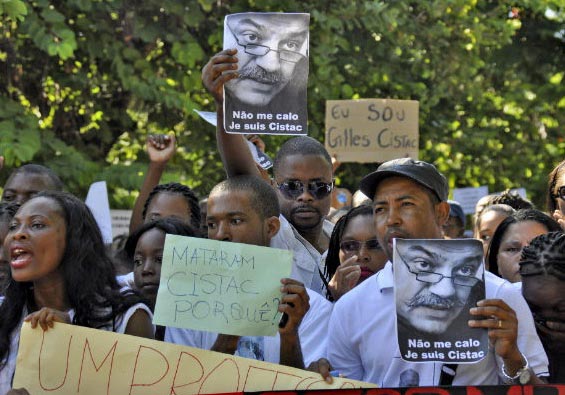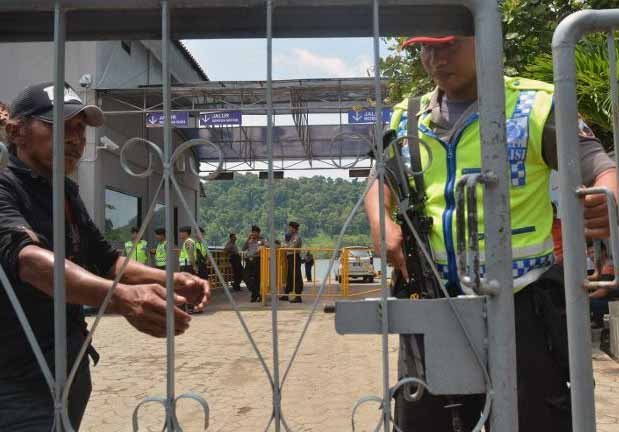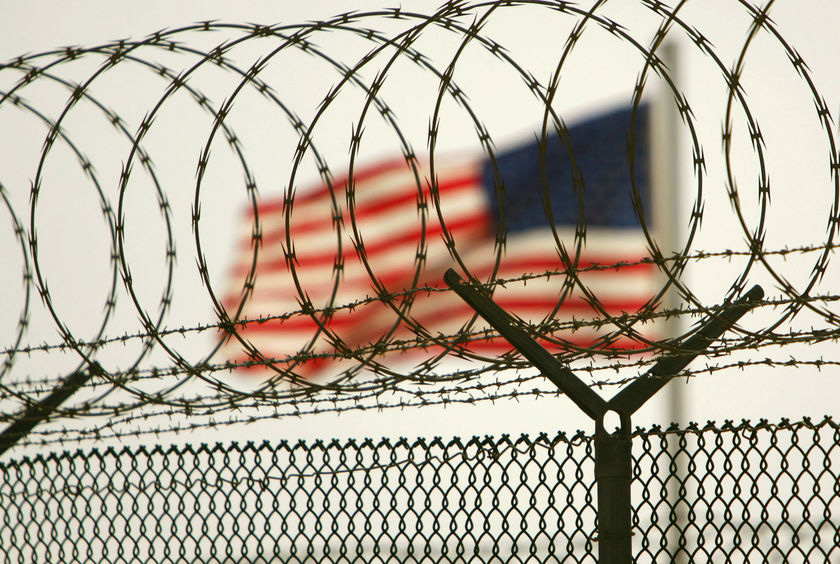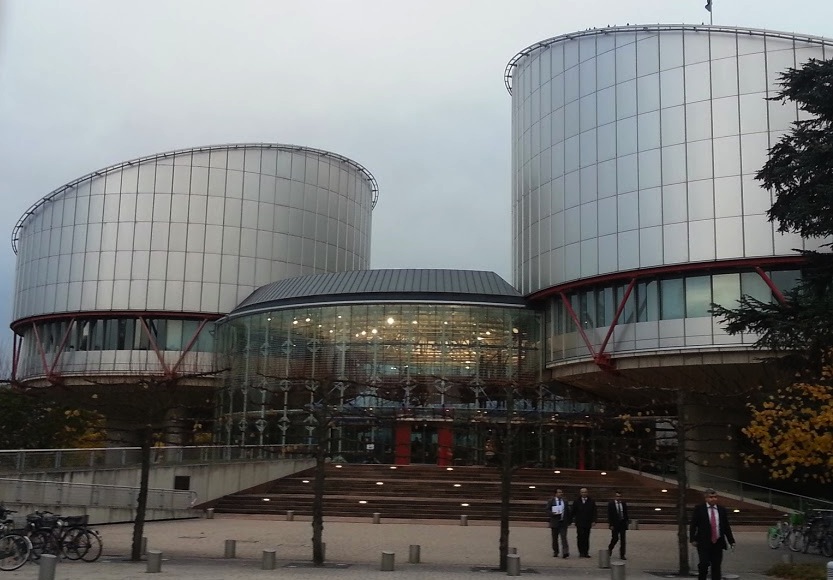
Mar 5, 2015 | Artículos, Noticias
La CIJ urge a las autoridades a tomar las medidas para investigar y corregir esta situación.
Entre el 23 de febrero y el 4 de marzo visitaron Guatemala miembros de la Asociación de Jueces de Noruega; el Presidente del Foro Democrático de Jueces de El Salvador y la ex Presidenta de la Asociación de Jueces por la Democracia de Honduras.
Dicha visita se llevó a cabo en el marco del trabajo de la CIJ sobre el fortalecimiento del Estado de Derecho en Guatemala.
La oportunidad fue propicia para realizar reuniones y debates con miembros del Poder Judicial de Guatemala y con otros operadores de justicia.
Además se mantuvieron reuniones con el Presidente de la Corte Suprema de Justicia y otras magistradas de dicha corte; con la Fiscal General; con el Procurador de los Derechos Humanos; con el Comisionado de la Comisión Internacional contra la Impunidad; con el representante de la Oficina del Alto Comisionado de las Naciones Unidas para los Derechos Humanos, así como con otros actores relevantes de la sociedad guatemalteca, abogados y abogadas; dirigentes de Pueblos Indígenas y representantes de Organizaciones No Gubernamentales.
Al concluir su trabajo, la CIJ se encuentra alarmada por las presiones que existen en contra de jueces y juezas independientes que debido al cumplimiento de su función son frecuentemente objeto de denuncias y amenazas.
Entre las acciones que se están implementando en contra de jueces y juezas independientes, lo constituyen los traslados selectivos e injustificados que tienen como principal objetivo afectar y castigar a aquellos jueces que cumplen su función en forma independiente e imparcial.
Por otro lado, se suman denuncias infundadas en contra de los mismos, al tiempo que se configura un patrón de represión en contra de ellos, que tiene como objetivo que los jueces y juezas renuncien a su independencia judicial y “ajustar cuentas” por los casos que han juzgado.
Por otro lado, el caso relacionado con las sanciones impuestas el año 2014 en forma arbitraria por el Tribunal de Honor del Colegio de Abogados y Notarios de Guatemala en contra de la Jueza Iris Yassmín Barrios Aguilar, aún se encuentra pendiente de resolución final, sin que la Corte de Constitucionalidad de Guatemala resuelva el amparo presentado por dicha jueza.
Desde el año pasado, la CIJ expresó que dichas sanciones son arbitrarias e ilegales y que los jueces y juezas no pueden ser sancionados por un órgano como el Tribunal de Honor del Colegio de Abogados, que carece de competencia para ello; además, manifestó que de conformidad con los estándares internacionales y la legislación interna, los jueces y juezas sólo pueden ser objeto de sanciones por parte de los órganos del Poder Judicial establecidos para tal fin (Juntas de Disciplina y Supervisión General de Tribunales).
Ramón Cadena, Director de la CIJ para Centroamérica expresó: “La situación es grave y urgimos a la Corte Suprema de Justicia a suspender cualquier medida que afecte la independencia de jueces y juezas y a implementar las reformas que se necesitan para promover y proteger la independencia del poder judicial como garantía para la ciudadanía y el fortalecimiento del Estado de Derecho.”

Mar 5, 2015 | News
The ICJ calls for the prompt and thorough investigation into the killing of Gilles Cistac, a prominent academic and human rights defender.
Gilles Cistac served as a Professor of Law at the Faculty of Law, Universidade Eduardo Mondlane in Mozambique.
His death, at the hands as of yet un-indentified gunmen in Maputo, Mozambique, on Tuesday 3 March 2015, follows his involvement in the debates on the sensitive issues of decentralization of power and establishment of autonomous provinces in Mozambique.
It is also reported that he was the subject of recent attacks on social media by a person who used a pseudonym and called Gilles Cistac a spy and a traitor, and accused him, along with others, of subverting the country.
“Demonstrating its commitment to the rule of law and respect for human rights, which were central to Gilles Cistac’s work, the government must fulfill its obligation to investigate the killing of Professor Cistac, promptly and effectively, and to ensure that those responsible are brought to justice in fair proceedings,” said Arnold Tsunga the Africa Director of the ICJ.
These obligations arise as part of the government’s duty to protect the right to life including under the African Charter on Human and Peoples’ Rights and the International Covenant on Civil and Political Rights, international human rights treaties to which Mozambique is a party.
The government must also take steps to ensure protection of those, including human rights defenders, who exercise their right to freedom of expression.
Arnold Tsunga also called on the authorities in Mozambique to heed the message of the UN High Commissioner for Human Rights, Zeid Ra’ad Al Hussein, UN High Commissioner for Human Rights: “Human rights defenders are not violent seditionists, criminals, nor bloody revolutionaries, as so many governments like to portray them. They are the best of us, all of us. And they have a message. (…) Understand the message, talk to them about it, be persuaded or persuade, without violence, instead of silencing them, punishing them, their families, and their communities.”
The ICJ will continue to monitor is the investigation of this deadly attack as part work to promote enhanced respect for human rights and in defence of human rights defenders.
Contact:
Arnold Tsunga, t +27 716 405 926 ; e arnold.tsunga(a)icj.org

Mar 4, 2015 | News
The ICJ today calls for the immediate suspension of the execution of 10 individuals in Indonesia who have been convicted of drug-related offences and are scheduled to be executed by firing squad this month.
“We call on President Jokowi Widodo to reconsider his decision to deny the petitions for clemency submitted to him by these individuals,” said Sam Zarifi, ICJ’s Regional Director for Asia and the Pacific. “This recent rash of executions of drug offenders violates international law and, based on experience around the globe, will not even address the real problems of drug-related crime in Indonesia.”
“The execution of these individuals would violate Indonesia’s obligations as a party to the International Covenant on Civil and Political Rights, and goes against the global trend towards the abolition of the death penalty,” Zarifi added.
According to a report by the UN Secretary General to the General Assembly in 2012, 150 of the 193 UN Member States have either abolished the death penalty or introduced a moratorium on it.
More recently, the UN General Assembly adopted a resolution calling for an international moratorium on the use of the death penalty.
The resolution, which was passed last December 2014, was supported by 117 member states.
This is a notable increase since the resolution was first adopted in 2007, when only 104 member states voted “yes”.
Earlier this year, six persons convicted of drug trafficking offences were executed by firing squad.
These executions, like those planned for the 10 later this month fly directly in the face of the findings and recommendations of the UN Human Rights Committee.
Following its review of Indonesia’s implementation of its obligations under the ICCPR in 2013, the Human Rights Committee recommended that the Government of Indonesia commute all death sentences imposed on persons convicted of drug offences, amend its laws to ensure that drug offences are not punishable by the death penalty, and to reinstate the moratorium on executions.
The ICJ also notes that the current spate of planned executions in Indonesia is inconsistent with the actions of the Government of preventing the executions of its nationals convicted of committing crimes abroad.
For example, in April last year, the Government of Indonesia paid US$2.1 million as so called ‘blood money’ to stop the execution of an Indonesian woman who had been working as a domestic helper in Saudi Arabia and was convicted of killing her elderly employer.
In addition to calling for the suspension of the planned executions, the ICJ calls on the Government of Indonesia to immediately re-establish a moratorium on the death penalty implemented from 2008 until 2013, when it resumed executions, and to take the steps necessary to abolish the death penalty.
The ICJ opposes death penalty for all crimes and considers its imposition a violation of the right to life and the right not to be subjected to cruel and inhuman treatment or punishment.
The 10 individuals scheduled to be executed are: Mary Jane Fiesta Veloso (Philippines); Myuran Sukumaran, aka Mark, (Australia); Serge Areski Atlaoui (France); Martin Anderson, aka Belo, (Ghana); Zainal Abidin (Indonesia); Raheem Agbaje Salami (Spain); Rodrigo Gularte (Brazil); Andrew Chan (Australia); Silvester Obiekwe Nwolise and Okwudili Oyatanze (both from Nigeria).
Contact:
Sam Zarifi, ICJ Regional Director for Asia and the Pacific, e sam.zarifi(a)icj.org or m +668 07819002
(Photo: Indonesian police at execution site).

Mar 4, 2015 | Events
A panel discussion on Guantánamo and accountability for torture, featuring UN Special Rapporteur on Torture Juan E. Méndez and other experts, will take place in Geneva on 9 March 2015 in connection with the UN Human Rights Council session.The panel features:
- Juan E. Méndez, UN Special Rapporteur on Torture
- Jamil Dakwar, Director, Human Rights Program, American Civil Liberties Union
- Peter Jan Honigsbert, U of San Francisco Law School, Founder & Director of Witness to Guantánamo
- Julia Hall, Expert on Counter-Terrorism and Human Rights, Amnesty International
moderator: Connie de la Vega, University of San Francisco Law School & Human Rights Advocates.
The ICJ joins the ACLU, Amnesty International, Human Rights Advocates, Conectas, Human Rights Watch, CELS, and OMCT in supporting this event.
The event takes place 9 march 2015, at 15:00-17:00, Room XXIII, Palais des Nations, in Geneva.
The event flyer may be downloaded in PDF format here: SideEventTorture

Mar 3, 2015 | Advocacy
In advance of the Brussels Conference on implementation of the European Convention on Human Rights, our shared responsibility, the ICJ and nine other NGOs issued a statement on the Conference’s draft Declaration.
The statement welcomes a number of aspects of the draft Declaration, which addresses the need for more effective implementation of the Convention and the full, rapid execution of European Court of Human Rights judgments.
It raises concerns at several elements of the draft Declaration, including recommendations to the Court which could undermine its independence, and the lack of recognition of the role of civil society in the effective execution of judgments of the European Court of Human Rights (photo).
Europe-NGO Statement on Brussels Draft Declaration-Advocay-2015-ENG (full text in PDF)









